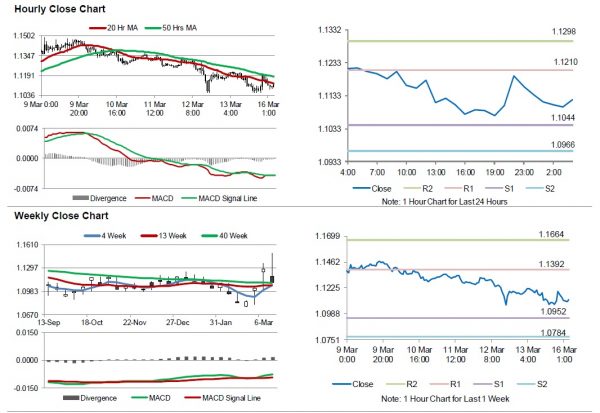For the 24 hours to 23:00 GMT, the EUR declined 0.67% against the USD and closed at 1.1103 on Friday.
On the data front, Germany’s consumer price index rose 0.4% on a monthly basis in February, in line with market forecast and compared to a drop of 0.6% in previous month.
In the US, the Michigan consumer sentiment index dropped to 95.9 in March, amid concerns over the coronavirus outbreak and compared to a level of 101.0 in the prior month. Market participants had expected the index to fall to a level of 95.0.
Separately, the US Federal Reserve (Fed), in its second emergency move, cut its benchmark interest rate to a range of 0-0.25% and pledged to keep the interest rate steady until it was confident that the economy has recovered from impact of coronavirus pandemic. Moreover, the Fed stated that it would purchase $700 billion worth of treasury bonds and mortgage-backed securities to support the economy.
In the Asian session, at GMT0400, the pair is trading at 1.1121, with the EUR trading 0.16% higher against the USD from Friday’s close.
The pair is expected to find support at 1.1044, and a fall through could take it to the next support level of 1.0966. The pair is expected to find its first resistance at 1.1210, and a rise through could take it to the next resistance level of 1.1298.
Amid no major economic releases in the Euro-zone today, investors would keep an eye on the US NY Empire State manufacturing index for March, slated to release later in the day.
The currency pair is showing convergence with its 20 Hr moving average and trading below its 50 Hr moving average.

